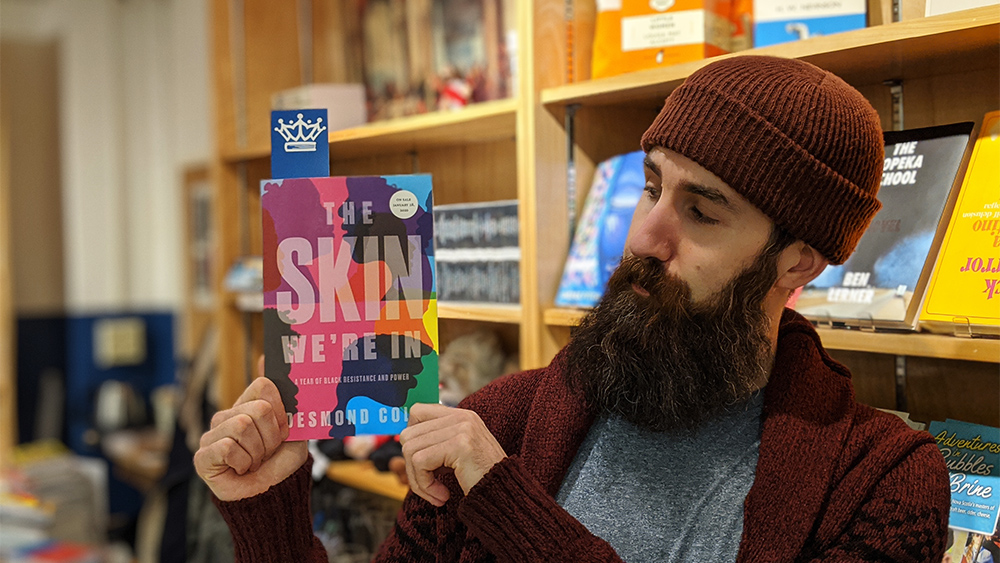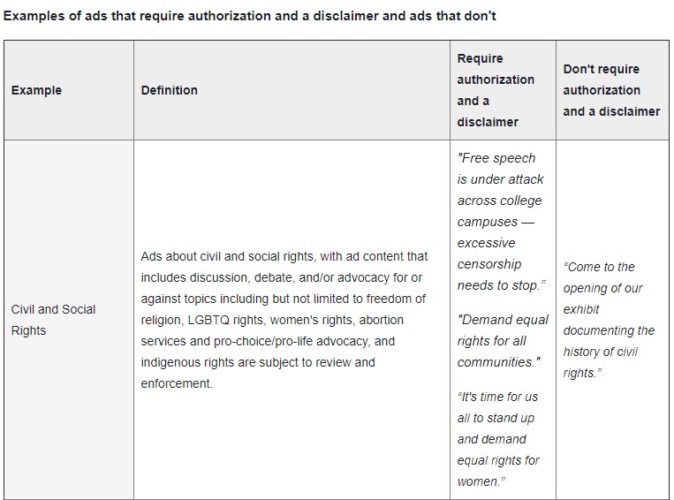Facebook’s new ad policy blocks Halifax bookstore event
Ad policy requires ID verification and a disclaimer for any ads promoting social issues

caption
Paul MacKay, who manages the King's Co-op Bookstore, holds an advanced copy of Desmond Cole's The Skin We're In.Last week, the King’s Co-op Bookstore posted an ad for the launch of Desmond Cole’s newest book, The Skin We’re In: A Year of Black Resistance and Power.
Facebook immediately rejected the request.
Bookstore manager Paul MacKay tried to find out why his ad had been blocked by following the link to Facebook’s ad policy page.
“I was just stunned at some of the things they use as examples for what is appropriate as far as they’re concerned,” he said.

caption
Facebook’s Ad Help web page says ads about social issues are subject to review.Cole’s new book documents his life as a black man in Canada in 2017 in addition to his experiences with racial profiling by police. The King’s Co-op Bookstore is hosting the book launch on Feb. 13.
Facebook refused to promote the ad because the event dealt with social and political issues.
“I really believe in Desmond’s book and was hoping to get more traffic out of this for people that maybe aren’t already following the bookstore,” MacKay said.
They also asked that the page’s administrator submit an address, phone number and government photo ID for verification.
Media law expert Michael Deturbide takes issue with Facebook’s policy.
“The biggest problem is that they’re asking for information and they’ve got a long history of not protecting that information,” said Deturbide, the director of the Law and Technology Institute at Dalhousie University’s Schulich School of Law.
“The amount of privacy breaches, and the amount of times they’ve taken this information and used it illegally, it boggles my mind why anyone still uses Facebook anymore.”

caption
Facebook’s new ad policy doesn’t allow boosting for events that deal with social or political issues. They also request ID verification from the page’s admin.Deturbide said in the past, Facebook has been a vehicle for getting messages out on the internet, but people don’t always consider the implications of giving out personal information until after something happens.
“The Cambridge Analytica thing sort of opened everyone’s eyes to why Facebook would be asking for this sort of information in this circumstance. I just don’t get it,” said Deturbide.
MacKay said he wasn’t comfortable putting his photo ID on Facebook because of security concerns.
“The idea that I would then go, ‘Oh yeah, here’s all my information, do you want my SIN number too?’ As a business, they shouldn’t be asking for my personal information,” he said.
MacKay took to Twitter to document his experience.
1/8 In the interest of promoting @DesmondCole‘s book launch to people who might not see it or aren’t in our immediate circles, we decided (as much as we hate giving them money) to boost the FB event to advertise what we feel is going to be an important book/conversation/event. pic.twitter.com/0N8f48GEui
— King’s Co-op Bookstore (@kingsbookstore) January 16, 2020
MacKay said he has promoted events with Facebook in the past and never had any trouble using the publisher’s description in the event page. Until now.
“It feels like they’re just washing their hands of it. It’s not like they recognize their mistake and are going to spend money to hire people to be checking these events manually,” he said.
MacKay said he’d hoped getting extra visibility for the event could reach people outside the bookstore’s regular followers.
“They might get interested in the book and therefore the idea,” he said.
“They’ll ask, ‘Who is Desmond Cole? Oh, what happened to him is totally unfair,’ and then this idea grows into a movement, and gathers more support.”
MacKay said he won’t be using Facebook’s ad promotion in the future.
About the author
Benjamin Elliott
Ben Elliott is a reporter for the Signal at King's College in Halifax. He got his HBA in Communication Studies from the University of Waterloo...
